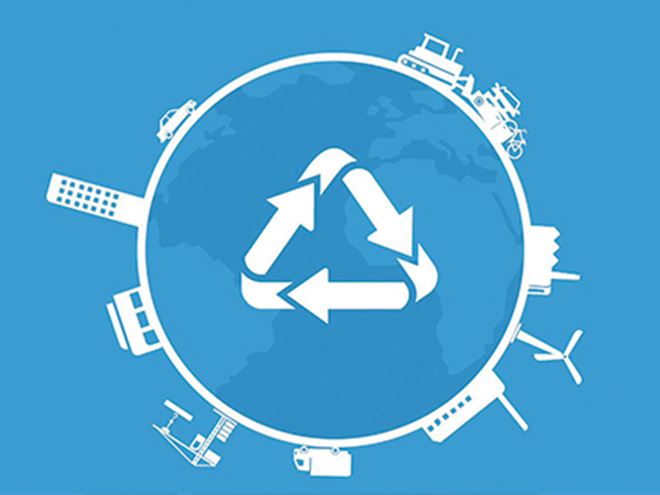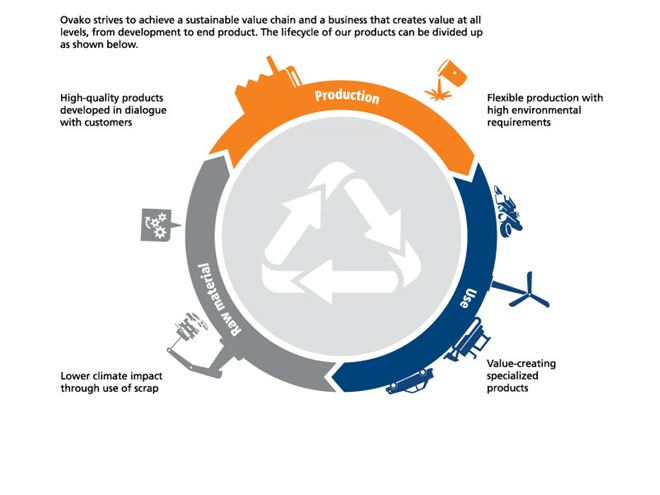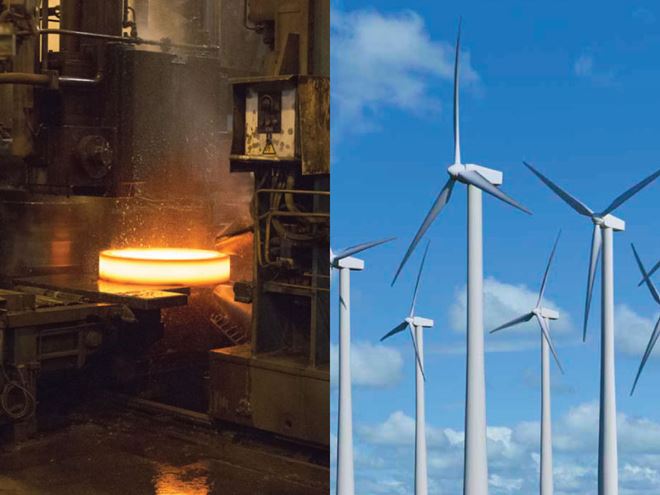As a leading player in the manufacture of high-quality steel, Ovako will mark Materialens år 2019 (Materials Year) by contributing to raise awareness of steel. Both as a material and its significance for social development and as a path to a sustainable society.
Steel is found almost everywhere around us and is a fantastic material since it can be recycled an infinite number of times without losing its properties. As a manufacturer of one of the world’s most-used materials, the steel industry has an important role in the development of materials that are able to address society’s future needs for sustainable steel products – in terms of both quality and environmental aspects.


Positive impact throughout the value chain
At Ovako, we work actively throughout the value chain to ensure control over the environmental impact of our products. Ovako’s manufacturing process is based on steel scrap, and we recycle about 800,000 tons annually, resulting in a significantly lower climate impact compared to ore-based steel. As one of the Nordic region’s largest recyclers of steel scrap, we are part of the cycle and are proud to be able to contribute to the circular economy.
High-quality steel products for critical challenges
Thanks to Ovako’s production processes and long experience of steel production, which stretches back many hundred years, Ovako is able to manufacture one of the cleanest and strongest steels on the market. Minimizing the impurities in the steel during the manufacturing process gives the steel high-quality properties and makes it clean as well as strong. This means that Ovako’s steel is well suited for demanding environments and applications that require fatigue strength, such as in wind turbines.
Wind turbines are located in places where the climate can be destructive, and therefore require steel that can withstand varied loading. In 2017, Ovako invested in a production process that ensures the production of double format, from 4.2 tons to 8.4 tons cast materials. The new format makes it possible to operate wind turbines with an output of up to 3 megawatts, which corresponds to the electricity consumption or around 750 houses over a year.

Ovako’s steel is produced for demanding applications, which means that Ovako’s customers can also manufacture smaller and lighter components, leading in turn to reduced climate impact. The goal for Materials Year is, at an overall level, to “get more people interested – not to say fascinated – in materials and their importance for people’s lives, for social development and for the path to a sustainable society”. We at Ovako therefore see it as a matter of course to contribute to educating and inspiring people about the steel industry’s fantastic function and potential, and how it can contribute to the circular economy.